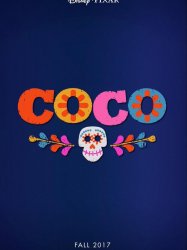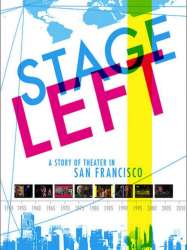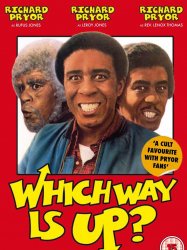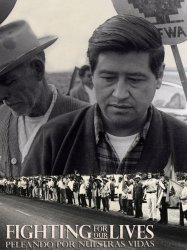Luis Valdez is a Actor, Director and Scriptwriter American born on 26 june 1940 at Delano (USA)

Luis Valdez (born June 26, 1940) is an American playwright, actor, writer and film director. Regarded as the father of Chicano theater in the United States, Valdez is best known for his play Zoot Suit, his movie La Bamba, and his creation of El Teatro Campesino. A pioneer in the Chicano Movement, Valdez broadened the scope of theatre and arts of the Chicano community.
Luis Valdez was born in Delano, California to migrant farm worker parents. The second of ten children in his family, Valdez began to work in the fields at the age of six. One of his brothers is the actor Daniel Valdez. Throughout his childhood, the family moved from harvest to harvest around the central valleys of California. Due to this peripatetic existence, he attended many different schools before the family finally settled in San Jose, California.
Education
Valdez began school in Stratlord, California. His interest in theatre began in the first grade. Throughout grammar school, Valdez organized plays at school and put on puppet shows in his garage, which, he recalls, were usually about fairy tales. In high school, Valdez was part of the Speech and Drama department and acted in several plays. He described himself as "a very serious student." Valdez graduated from James Lick High School in San Jose and went on to attend San Jose State University (SJSU) on a scholarship for math and physics. During his second year of college, he switched his major to English. While in college, Valdez won a playwriting contest with his one-act play The Theft in 1961. Two years later, in 1963, Valdez's first full-length play, The Shrunken Head of Pancho Villa, was produced by the drama department and debuted at SJSU.
Early Career: El Teatro Campesino
After graduation, Valdez spent the next few months with The San Francisco Mime Troupe, where he was introduced to agitprop theatre and Italian commedia dell'arte. These two techniques greatly influenced Valdez's development of the basic structure of Chicano theatre: the one-act presentational acto (act).
In 1965, Valdez returned to Delano, where he enlisted in Cesar Chavez's mission to organize farm workers into a comprehensive union. Valdez brought together farm workers and students to form El Teatro Campesino, a farm worker's theater troupe. El Teatro was known for touring migrant camps with their actos, one-act plays, which were usually around fifteen minutes long. The plays were used to educate and inform not only the farm workers, but also the public. Valdez believed that humor was a major asset to his plays in El Teatro Campesino as it was a tool to lift the morale of strikers. Social and political commentary were intertwined within the humor to accomplish the goals of El Teatro Campesino. Original plays of El Teatro were based on the experiences of farm workers, but by 1967 their subject matter expanded to other aspects of Chicano culture. Although Valdez left El Teatro in 1967, his legacy lived on. Thanks in large part to Valdez and El Teatro Campesino, the 1970s saw an explosion of Chicano theater. Theater groups sprang up with surprising speed on college campuses and in communities throughout the United States. What began as a farm workers' theater in the migrant camps of Delano flooded into a national Chicano theater movement.
Later career
In 1967, Valdez established a Chicano cultural center in Del Ray, California. In 1969 he moved both theater and cultural center to Fresno, where they remained for two years. While in Fresno, Valdez taught at Fresno State College and created TENAZ, the national Chicano theater organization, which was composed of many with theatre groups throughout the Southwest. Valdez moved the theater a final time in 1971, to San Juan Bautista, south of San Francisco. Combined now with the cultural center, it was called El Centro Campesino Cultural, and it became a fully professional production company.
Luis Valdez is a founding faculty member and director (c. 1994) of the California State University, Monterey Bay Teledramatic Arts and Technology Department. He is credited with assisting in the development of a university program that prepares students in the entertainment industry: filmmaking, writing, sound, cinematography, and the like.
Source : Wikidata
Luis Valdez

- Infos
- Photos
- Best films
- Family
- Characters
- Awards
Biography
Early lifeLuis Valdez was born in Delano, California to migrant farm worker parents. The second of ten children in his family, Valdez began to work in the fields at the age of six. One of his brothers is the actor Daniel Valdez. Throughout his childhood, the family moved from harvest to harvest around the central valleys of California. Due to this peripatetic existence, he attended many different schools before the family finally settled in San Jose, California.
Education
Valdez began school in Stratlord, California. His interest in theatre began in the first grade. Throughout grammar school, Valdez organized plays at school and put on puppet shows in his garage, which, he recalls, were usually about fairy tales. In high school, Valdez was part of the Speech and Drama department and acted in several plays. He described himself as "a very serious student." Valdez graduated from James Lick High School in San Jose and went on to attend San Jose State University (SJSU) on a scholarship for math and physics. During his second year of college, he switched his major to English. While in college, Valdez won a playwriting contest with his one-act play The Theft in 1961. Two years later, in 1963, Valdez's first full-length play, The Shrunken Head of Pancho Villa, was produced by the drama department and debuted at SJSU.
Early Career: El Teatro Campesino
After graduation, Valdez spent the next few months with The San Francisco Mime Troupe, where he was introduced to agitprop theatre and Italian commedia dell'arte. These two techniques greatly influenced Valdez's development of the basic structure of Chicano theatre: the one-act presentational acto (act).
In 1965, Valdez returned to Delano, where he enlisted in Cesar Chavez's mission to organize farm workers into a comprehensive union. Valdez brought together farm workers and students to form El Teatro Campesino, a farm worker's theater troupe. El Teatro was known for touring migrant camps with their actos, one-act plays, which were usually around fifteen minutes long. The plays were used to educate and inform not only the farm workers, but also the public. Valdez believed that humor was a major asset to his plays in El Teatro Campesino as it was a tool to lift the morale of strikers. Social and political commentary were intertwined within the humor to accomplish the goals of El Teatro Campesino. Original plays of El Teatro were based on the experiences of farm workers, but by 1967 their subject matter expanded to other aspects of Chicano culture. Although Valdez left El Teatro in 1967, his legacy lived on. Thanks in large part to Valdez and El Teatro Campesino, the 1970s saw an explosion of Chicano theater. Theater groups sprang up with surprising speed on college campuses and in communities throughout the United States. What began as a farm workers' theater in the migrant camps of Delano flooded into a national Chicano theater movement.
Later career
In 1967, Valdez established a Chicano cultural center in Del Ray, California. In 1969 he moved both theater and cultural center to Fresno, where they remained for two years. While in Fresno, Valdez taught at Fresno State College and created TENAZ, the national Chicano theater organization, which was composed of many with theatre groups throughout the Southwest. Valdez moved the theater a final time in 1971, to San Juan Bautista, south of San Francisco. Combined now with the cultural center, it was called El Centro Campesino Cultural, and it became a fully professional production company.
Luis Valdez is a founding faculty member and director (c. 1994) of the California State University, Monterey Bay Teledramatic Arts and Technology Department. He is credited with assisting in the development of a university program that prepares students in the entertainment industry: filmmaking, writing, sound, cinematography, and the like.
Best films
Usually with
Filmography of Luis Valdez (8 films)
Actor

Coco (2017)
, 1h45Directed by Lee Unkrich, Adrian Molina
Origin USA
Genres Comedy, Fantasy, Adventure, Musical, Animation
Themes Children's films
Actors Gael García Bernal, Benjamin Bratt, Anthony Gonzalez, Alanna Ubach, Ana Ofelia Murguia, Renée Victor
Roles Tío Berto / Don Hidalgo (voice)
Rating83%





Autrefois, Imelda Rivera était mariée à un musicien talentueux. Ce dernier avait quitté sa femme et sa fille, Coco, pour poursuivre sa carrière musicale. En représailles, Imelda avait banni toute musique dans sa famille et créé une entreprise de cordonnerie, transmise de génération en génération. Dans le présent, son arrière-arrière-petit-fils, Miguel, âgé de 12 ans, vit avec sa famille, et Coco, son arrière-grand-mère, dans le petit village mexicain de Santa Cecilia. Il rêve de devenir un musicien comme Ernesto de la Cruz, vedette de la chanson et du cinéma, de la même génération qu'Imelda (ce dernier est mort lors d'une représentation, quand une énorme cloche lui est tombée sur la tête). Lors des préparatifs de la Fête des Morts, Miguel casse accidentellement le cadre de la photographie d'Imelda, au centre de l'autel, et découvre que son mari (dont la tête a été arrachée de la photographie) tenait la célèbre guitare blanche d'Ernesto. Plus tard dans la soirée, quand Miguel fait part à sa famille de son intention de participer au concours de talents du Jour des Morts, sa grand-mère Elena détruit sa guitare. Furieux, il quitte la maison et se dirige vers le cimetière de la ville.
 , 1h22
, 1h22Origin USA
Genres Documentary
Themes Documentary films about cities
Actors Peter Coyote, Robin Williams, Luis Valdez, Bill Irwin, William Ball

Which Way Is Up? (1977)
, 1h34Directed by Michael Schultz
Genres Comedy
Actors Lonette McKee, Richard Pryor, Margaret Avery, Morgan Woodward, Tim Thomerson, Daniel Valdez
Roles Ramon Juarez
Rating61%





When he falls into a union action by mistake, Leroy Jones is laid off from his job picking oranges. The only option given to find work to provide for his wife Annie Mae, their kids and his father Rufus is to leave them behind and go to Los Angeles, where more jobs are available. While he is away, Leroy becomes smitten with Vanetta, a beautiful labor activist. When he returns home, he has to juggle his wife, his new romance with Vanetta and his new job, meanwhile, the Rev. Lenox Thomas is not only watching out for Leroy's wife, nope
Director

The Cisco Kid (1994)
, 1h31Directed by Luis Valdez
Origin USA
Genres Comedy, Western
Themes Political films
Actors Jimmy Smits, Ron Perlman, Cheech Marin, Bruce Payne, Tony Amendola, Pedro Armendáriz (fils)
Rating56%





The Cisco Kid and his English sidekick Pancho were used to riding around Mexico and dealing with injustice. In this film they inspire Mexican peasants to oust settlers from the Second French Empire.

La Bamba (1987)
, 1h48Directed by Luis Valdez
Origin USA
Genres Drama, Biography, Musical theatre, Musical
Themes Films about music and musicians, Musical films
Actors Lou Diamond Phillips, Esai Morales, Rosanna DeSoto, Elizabeth Peña, Danielle von Zerneck, Joe Pantoliano
Rating69%





Richard Steven Valenzuela (Phillips) is a normal teenage boy who becomes a rock 'n' roll superstar under the stage name Ritchie Valens. He meets and falls in love with fellow high school student Donna Ludwig (von Zerneck), for whom he wrote a song that became a number two hit ("Donna"). However, Donna's father is shown as having issues with his daughter dating a Mexican-American, which causes friction between Ritchie and Donna. The movie also has several subplots, such as his relationship with his mother Connie Valenzuela (DeSoto) and half-brother Bob Morales (Esai Morales), and the jealousy Bob felt toward Ritchie because of Ritchie's success.

Zoot Suit (1981)
, 1h43Directed by Luis Valdez
Origin USA
Genres Drama, Musical
Themes Films about music and musicians, Musical films, Films based on plays
Actors Edward James Olmos, Daniel Valdez, Tyne Daly, Charles Aidman, John Anderson, Mike Gomez
Rating66%





In Zoot Suit, Luis Valdez weaves a story involving the real-life events of the Sleepy Lagoon murder trial — when a group of young Mexican-Americans were charged with murder — and the Zoot Suit Riots. In the play, Henry Reyna (inspired by real-life defendant Hank Leyvas) is a pachuco gangster and his gang, who were unfairly prosecuted, are thrown in jail for a murder they did not commit. The play is set in the barrios of Los Angeles in the early 1940s against the backdrop of the Zoot Suit Riots and World War II. As in the play, Edward James Olmos portrays El Pachuco, an idealized Zoot Suiter, who functions as narrator throughout the story and serves as Henry's conscience.
Scriptwriter

The Cisco Kid (1994)
, 1h31Directed by Luis Valdez
Origin USA
Genres Comedy, Western
Themes Political films
Actors Jimmy Smits, Ron Perlman, Cheech Marin, Bruce Payne, Tony Amendola, Pedro Armendáriz (fils)
Rating56%





The Cisco Kid and his English sidekick Pancho were used to riding around Mexico and dealing with injustice. In this film they inspire Mexican peasants to oust settlers from the Second French Empire.

La Bamba (1987)
, 1h48Directed by Luis Valdez
Origin USA
Genres Drama, Biography, Musical theatre, Musical
Themes Films about music and musicians, Musical films
Actors Lou Diamond Phillips, Esai Morales, Rosanna DeSoto, Elizabeth Peña, Danielle von Zerneck, Joe Pantoliano
Roles Writer
Rating69%





Richard Steven Valenzuela (Phillips) is a normal teenage boy who becomes a rock 'n' roll superstar under the stage name Ritchie Valens. He meets and falls in love with fellow high school student Donna Ludwig (von Zerneck), for whom he wrote a song that became a number two hit ("Donna"). However, Donna's father is shown as having issues with his daughter dating a Mexican-American, which causes friction between Ritchie and Donna. The movie also has several subplots, such as his relationship with his mother Connie Valenzuela (DeSoto) and half-brother Bob Morales (Esai Morales), and the jealousy Bob felt toward Ritchie because of Ritchie's success.

Zoot Suit (1981)
, 1h43Directed by Luis Valdez
Origin USA
Genres Drama, Musical
Themes Films about music and musicians, Musical films, Films based on plays
Actors Edward James Olmos, Daniel Valdez, Tyne Daly, Charles Aidman, John Anderson, Mike Gomez
Roles Writer
Rating66%





In Zoot Suit, Luis Valdez weaves a story involving the real-life events of the Sleepy Lagoon murder trial — when a group of young Mexican-Americans were charged with murder — and the Zoot Suit Riots. In the play, Henry Reyna (inspired by real-life defendant Hank Leyvas) is a pachuco gangster and his gang, who were unfairly prosecuted, are thrown in jail for a murder they did not commit. The play is set in the barrios of Los Angeles in the early 1940s against the backdrop of the Zoot Suit Riots and World War II. As in the play, Edward James Olmos portrays El Pachuco, an idealized Zoot Suiter, who functions as narrator throughout the story and serves as Henry's conscience.
 Connection
Connection



